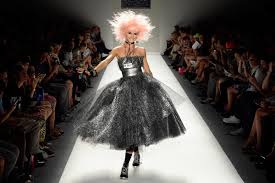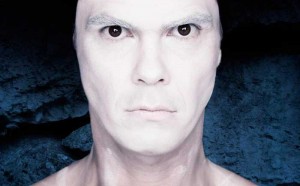[contextly_auto_sidebar id=”ojIqNlIw64scnz8T8kTXSHMoVzMr7UPu”]
What the New York Philharmonic needs in a music director…I laid this out in my last post, though maybe without fully focusing on it. The Philharmonic needs someone dynamic, someone who can be the face of an orchestra that comes alive for as much of New York as possible.
And since NYC — my home town! — is a very particular place, one with a highly developed sense of itself, this music director needs to be seen as a New Yorker, whether born or made. Leonard Bernstein, even if he came from Boston, is the obvious example, since he was (to use the title of one of his shows) on the town, in a big way, a hot young man, composer of hit Broadway musicals.
More dreams
 His like won’t come again. And what would a new Bernstein even be? A top conductor who was also a dance DJ and hiphop producer, with hit records and a huge following? Hmmm…I’d like to see that! But at least we could have someone who runs in the New York marathon, throws out the first ball at Mets games, and shows up at Fashion Week.
His like won’t come again. And what would a new Bernstein even be? A top conductor who was also a dance DJ and hiphop producer, with hit records and a huge following? Hmmm…I’d like to see that! But at least we could have someone who runs in the New York marathon, throws out the first ball at Mets games, and shows up at Fashion Week.
And hosts SNL! Well, I can dream. More realistically, we could have someone who scaled down from these heights toward something we’re more likely to see. But Fashion Week is definitely practical, along with showing up at major art openings, eating at Sylvia’s, and (switching sports) sitting courtside to watch the Knicks lose.
This person would of course be identified with killer programming. Really gripping, sometimes fun performances of standard rep. Family and community events that just jump off the stage, with the audience encouraged to hold their phones high, and beam what they hear to family and friends.
And then of course unusual things — off the charts new music, something outside the normal classical experience, shaped and colored by the conductor’s own taste. An example: the American Mavericks concerts that MTT used to lead after the end of the San Francisco Symphony’s regular season, featuring American composers who don’t come from the classical concert hall.
“Why would I do that?”
A story about how far those concerts reached: Some years ago, I went to a birthday party for one of my wife’s college friends, a lawyer in NYC. At a bowling alley. So here I am bowling, and talking to a woman i hadn’t known before, someone who looked like she was in her 30s.
She’d just moved to NY from San Francisco. When we got to the “What do you do” part of the conversation, and I said I worked in classical music, she — who wasn’t any kind of classical music fan — started raving about the Ives Fourth Symphony, which she’d heard on one of MTT’S Mavericks events. The American Mavericks concerts, pretty plainly, had become a brand, one that lept off the concert stage to speak to people who wouldn’t normally go to hear classical music.
 I asked this woman if she ever went to the New York Philharmonic. “No,“ she said, looking baffled. ”Why would I want to do that?“ She went to events at BAM, she said, at the Brooklyn Academy of Music, where ever since the 1970s, New Yorkers have gone for dance, theater, performance art, and music events that once might have been labelled ”avant-garde.” But which over the decades have been branded as, and have quite legitimately become, a kind of alternative mainstream.
I asked this woman if she ever went to the New York Philharmonic. “No,“ she said, looking baffled. ”Why would I want to do that?“ She went to events at BAM, she said, at the Brooklyn Academy of Music, where ever since the 1970s, New Yorkers have gone for dance, theater, performance art, and music events that once might have been labelled ”avant-garde.” But which over the decades have been branded as, and have quite legitimately become, a kind of alternative mainstream.
Lincoln Center, in the 1990s, caught on to the success of this new space, and jumped into it with its annual Lincoln Center Festival. I’d think the Philharmonic needs to be there, too.
Next: some practical considerations. How orchestras make these choices, and why they can’t always get what they want. Plus why some names that seem plausible for the job might not really be.

Phillip Glass comes to mind, but of course, he is 70. How about the incoming composer-in-residence, Essa-Pekka Salonen? I was at the LA Phil while he was there. Brilliant!!